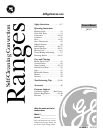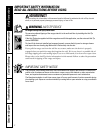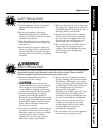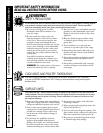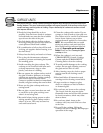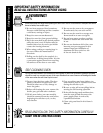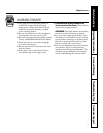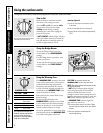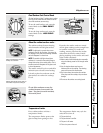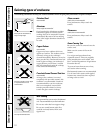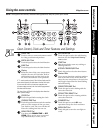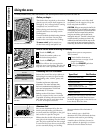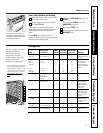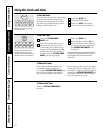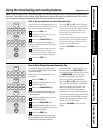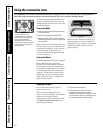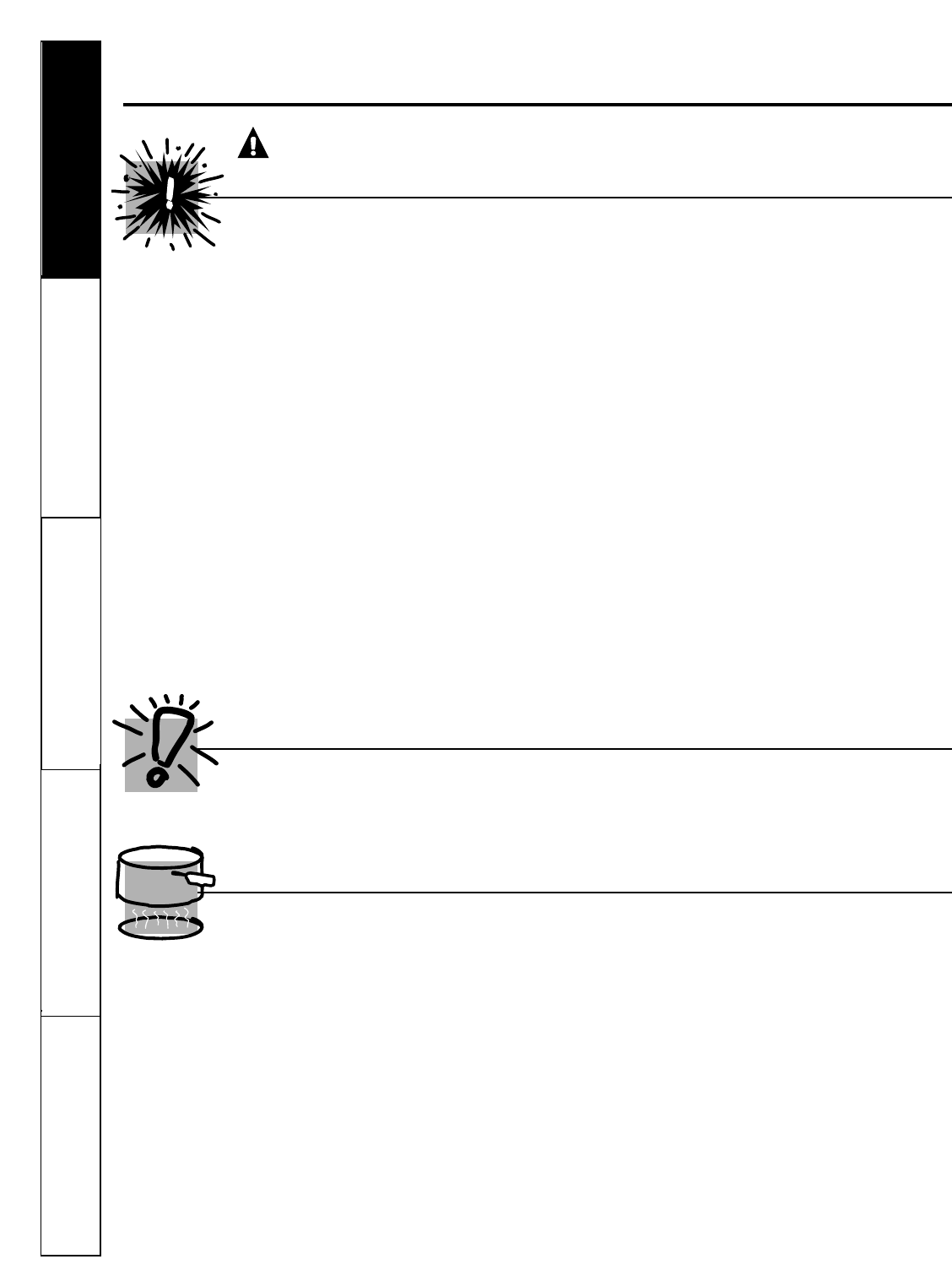
4
Consumer Support Troubleshooting Tips Care and Cleaning Operating Instructions Safety Instructions
IMPORTANT SAFETY INFORMATION.
READ ALL INSTRUCTIONS BEFORE USING.
■ Do not let cooking grease or other
flammable materials accumulate in or
near the range.
■ Do not touch the surface units, the
heating elements or the interior surface
of the oven. These surfaces may be hot
enough to burn even though they are
dark in color. During and after use, do not
touch, or let clothing or other flammable
materials contact the surface units, areas
nearby the surface units or any interior
area of the oven; allow sufficient time for
cooling first.
■ Potentially hot surfaces include the
cooktop, areas facing the cooktop, oven
vent opening, surfaces near the opening,
crevices around the oven door.
■ REMEMBER: The inside surface of the oven
may be hot when the door is opened.
■ Do not store or use combustible materials,
gasoline or other flammable vapors and
liquids in the vicinity of this or any other
appliance.
■ Keep the hood and grease filters clean
to maintain good venting and to avoid
grease fires.
■ Teach children not to play with the
controls or any other part of the range.
■ Always keep dish towels, dish cloths, pot
holders and other linens a safe distance
from your range.
■ Always keep wooden and plastic utensils
and canned food a safe distance from
your range.
■ Always keep combustible wall coverings,
curtains or drapes a safe distance from
your range.
WARNING!
SAFETY PRECAUTIONS
Cook meat and poultry thoroughly—meat to at least an INTERNAL temperature of 160°F and poultry
to at least an INTERNAL temperature of 180°F. Cooking to these temperatures usually protects against
foodborne illness.
COOK MEAT AND POULTRY THOROUGHLY…
Do not operate the oven or cooktop controls if the glass is broken. Food splatter or cleaning solution
may penetrate a broken control panel and create a risk of electrical shock. Contact a qualified
technician immediately should your glass control panel become broken.
Use proper pan size—select cookware having flat bottoms large enough to cover the surface unit
heating element. The use of undersized cookware will expose a portion of the surface unit to direct
contact and may result in ignition of clothing. Proper relationship of cookware to surface unit will
also improve efficiency.
SURFACE UNITS
■ Never leave the surface units unattended at
high heat settings. Boilovers cause smoking
and greasy spillovers that may catch on fire.
■ Only certain types of glass, glass ⁄ceramic,
earthenware or other glazed containers are
suitable for cooktop service; others may
break because of the sudden change in
temperature.
■ To minimize the possibility of burns,
ignition of flammable materials and
spillage, the handle of a container should
be turned toward the center of the range
without extending over nearby surface units.
■ Always turn the surface units off before
removing cookware.
■ When preparing flaming foods under the
hood, turn the fan on.
■ Use care when touching the cooktop. The
glass surface of the cooktop will retain heat
after the controls have been turned off.
■ Keep an eye on foods being fried at high
or medium high heat settings.



